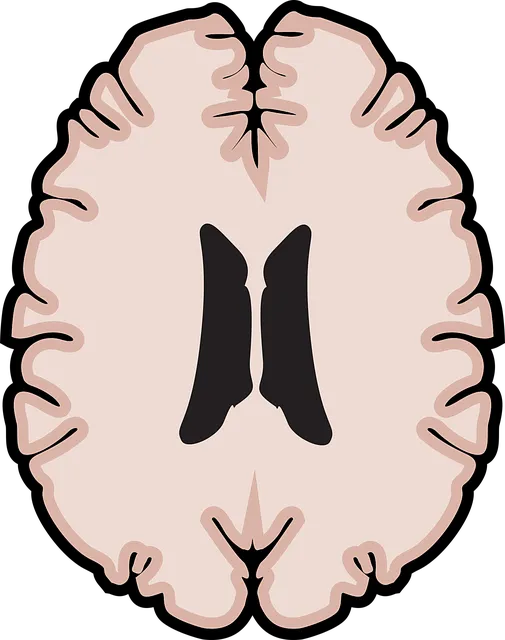Burnout among healthcare providers is a growing concern addressed by Westminster Kaiser's specialized mental health programs. These initiatives, including Mental Wellness Journaling Exercise Guidance, Mental Wellness Podcast Series, Coping Skills Development (CSD), and Burnout Prevention training, focus on stress management, resilience building, and stigma reduction. By teaching mindfulness, cognitive reframing, and open communication, these programs help medical professionals enhance work-life balance, improve patient care quality, and increase job satisfaction.
Healthcare provider burnout is a growing concern, impacting not just individuals but the broader healthcare system. This article explores strategies to prevent burnout among healthcare professionals, focusing on lessons from the comprehensive Westminster Kaiser mental health programs. We delve into effective practices in clinical settings and emphasize the importance of fostering resilient workplaces to enhance well-being and mitigate burnout. By understanding burnout dynamics and implementing proven strategies, healthcare organizations can create sustainable solutions.
- Understanding Burnout Among Healthcare Providers
- Westminster Kaiser Mental Health Programs: An Overview
- Effective Strategies to Prevent Burnout in Clinical Settings
- Fostering Resilient Workplaces: A Call for Action
Understanding Burnout Among Healthcare Providers

Burnout among healthcare providers is a growing concern, with high stress levels, long working hours, and demanding patient care contributing to significant mental health challenges. It’s a complex issue that requires understanding and addressing at every level of healthcare delivery. According to research, healthcare professionals often struggle to maintain their mental wellness, leading to decreased job satisfaction, increased turnover rates, and potential risks to patient safety. The pressure to deliver quality care while managing administrative burdens can take a toll on even the most dedicated medical staff.
Westminster Kaiser mental health programs recognize these challenges and offer comprehensive resources such as Mental Wellness Journaling Exercise Guidance and Mental Wellness Podcast Series Production to support healthcare providers. These initiatives aim to foster self-care practices, resilience, and work-life balance, ultimately preventing burnout. By encouraging open dialogue, mindfulness, and accessible guidance, these programs contribute to a healthier mental landscape for medical professionals, ensuring they can continue to provide optimal patient care with renewed passion and energy.
Westminster Kaiser Mental Health Programs: An Overview

Westminster Kaiser offers a range of mental health programs designed to support healthcare providers facing burnout and promote well-being. These programs recognize the unique challenges faced by medical professionals, focusing on stress management, resilience building, and fostering healthy coping mechanisms. One notable initiative is their Mental Illness Stigma Reduction Efforts, which aim to create supportive environments and enhance understanding among colleagues.
Through these programs, healthcare providers gain access to resources for Depression Prevention and Coping Skills Development. By participating in these initiatives, medical staff can learn effective strategies to manage stress, improve work-life balance, and develop a robust mental health toolkit. The comprehensive approach of Westminster Kaiser ensures that healthcare providers have the necessary tools to combat burnout while improving patient care and overall job satisfaction.
Effective Strategies to Prevent Burnout in Clinical Settings

In clinical settings, preventing burnout among healthcare providers is a multifaceted challenge that requires a holistic approach. According to research and programs like those offered by Westminster Kaiser, fostering a healthy work environment is key. One effective strategy involves integrating Coping Skills Development initiatives to enhance resilience against stress. These programs can teach mental health techniques such as mindfulness, relaxation exercises, and cognitive reframing, which have been shown to significantly reduce anxiety and improve overall well-being, thereby preventing burnout.
Additionally, creating opportunities for Anxiety Relief through structured support groups or individual counseling sessions within the healthcare facility can provide providers with safe spaces to process their experiences. Encouraging open communication about workload pressures, emotional challenges, and potential solutions empowers staff to proactively manage stress levels. By combining these coping mechanisms with regular Burnout Prevention training, healthcare organizations can create a culture that prioritizes provider mental health, ensuring long-term sustainability and quality patient care.
Fostering Resilient Workplaces: A Call for Action

In today’s demanding healthcare landscape, fostering resilient workplaces is more crucial than ever to prevent provider burnout. Organizations like Westminster Kaiser recognize this need and have developed mental health programs aimed at supporting emotional regulation and enhancing emotional healing processes among healthcare professionals. These initiatives not only prioritize individual well-being but also contribute to improved patient care by cultivating a supportive work environment.
By implementing confidence-boosting strategies, healthcare facilities can empower their staff to better manage stress and challenge the relentless demands of their roles. This collective effort to prioritize resilience is a game-changer in preventing burnout, ensuring that providers can continue to deliver quality care with compassion and expertise.
Healthcare provider burnout is a significant concern, but with the right strategies, it can be effectively mitigated. The Westminster Kaiser mental health programs serve as a compelling example of comprehensive support for healthcare workers. By implementing evidence-based practices and fostering resilient workplaces, we can address this issue holistically. It’s time to prioritize burnout prevention, ensuring that healthcare providers have the tools and resources needed to thrive in their crucial roles.






